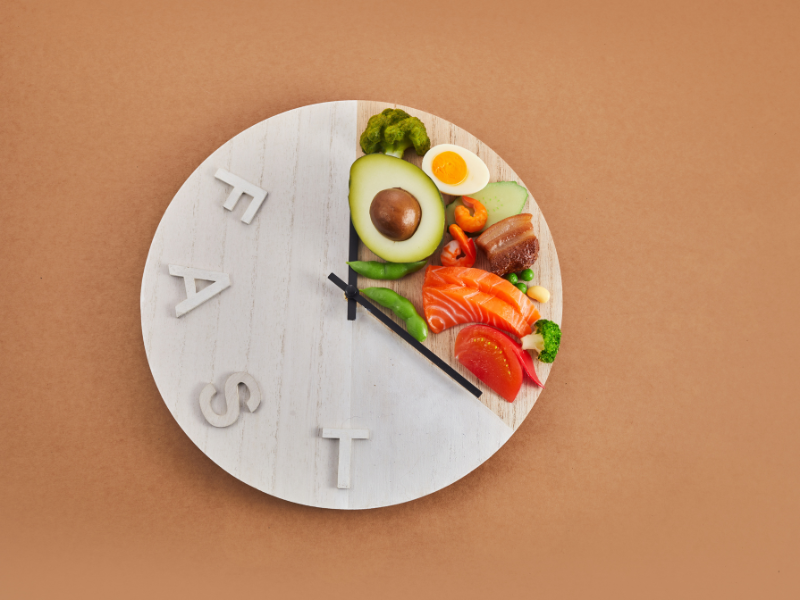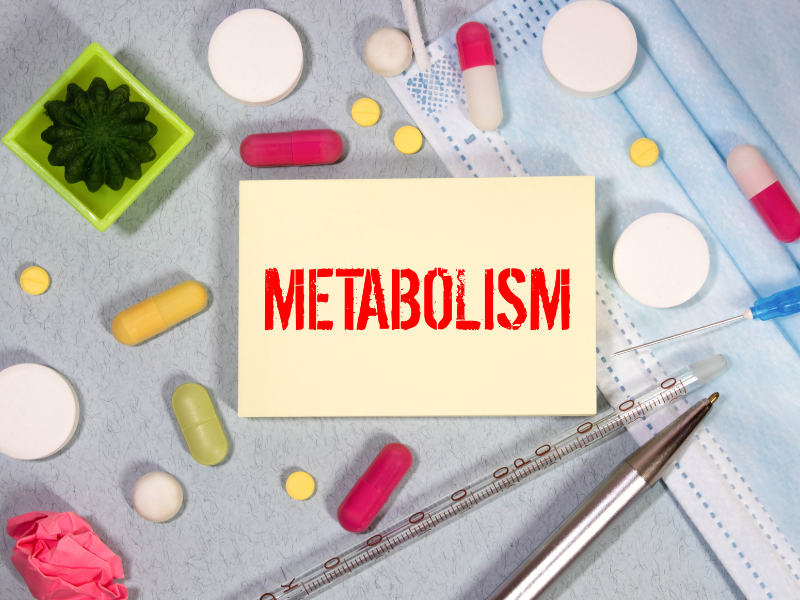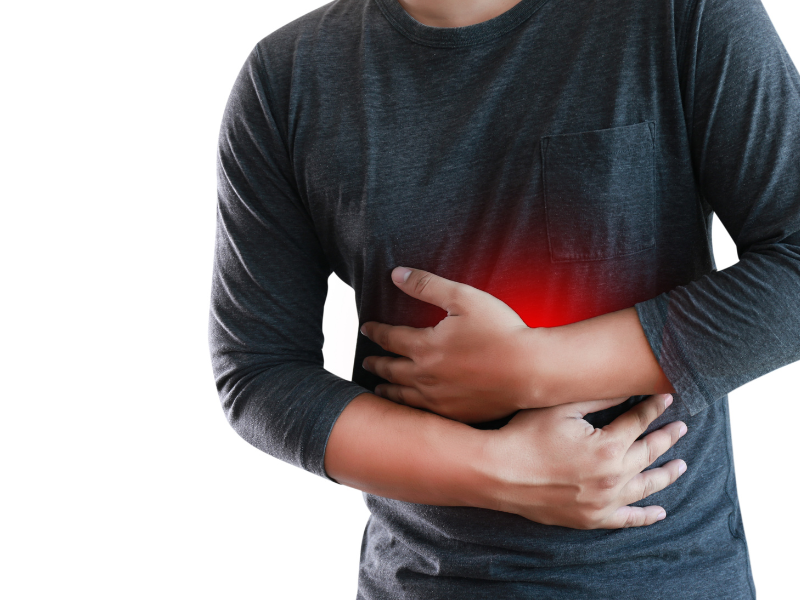


People often question what is acceptable to consume when you’re intermittent fasting, and a lot of this revolves around coffee. Coffee is an indispensable part of most people’s daily diet, with nearly 3 in 4 Americans (74%) drinking it daily [1]. So it’s no surprise that people are curious to know if they can continue having their morning coffee as part of their fasting routine, and we’re here to break it down for you and also explore if having coffee while fasting bears any benefits!
What is Intermittent Fasting?

Intermittent fasting can be defined as an eating pattern where when you eat is controlled, rather than what you eat. It involves windows of fasting and eating and there are different ways to practice depending on different windows of time. It is said to help with fat loss, muscle growth, insulin sensitivity, cellular repair, and more, all of which contribute to the metabolic benefits of fasting. When considering what is acceptable to consume during intermittent fasting, it’s crucial to be mindful of your caloric intake
Can You Drink Coffee While Fasting?
So, to answer the question: yes, you can drink coffee while fasting, and it’s best to drink black coffee. But the type of coffee you consume matters, as drinking coffee break can depend on whether you add any ingredients to it.
Since intermittent fasting prohibits the consumption of extra calories, black coffee won’t break your fast and does not interfere with the metabolic benefits of fasting. However, the moment you start adding cream, sugar, milk, or other calorie-containing ingredients, you risk disrupting your fast and limiting its benefits. These additions can spike your blood sugar levels and introduce calories that your body will need to process, thereby breaking the fast. So, if you want to enjoy your coffee while fasting, it’s best to keep it black and simple.
Related articles:
Intermittent Fasting by Age Chart: A Guide on How it Works
Intermittent Fasting During Menopause: Everything You Need to Know
What Can You Add If You Can’t Take Black Coffee?

Under the strict confines of fasting, only black coffee can be acceptable. But if you’re hoping to bend the rules a little because the bitter flavor of 100% coffee isn’t for you, you can try adding some of the minimal calorie and natural ingredients:
- Cinnamon
- Cardamom
- 100% vanilla powder
- Nutmeg
While plant-based milks aren’t ideal to be used either, unsweetened almond milk can be seen as an option to enhance the flavor of coffee without significantly impacting calorie intake. Methods like drip coffee, which involves pouring hot water over coarsely ground coffee beans, can produce a smoother taste that many find enjoyable during fasting too.
How Does Bulletproof Coffee Work?

The bulletproof coffee contains premium MCT oil, grass fed butter, and coconut oil. A cup of it contrains around 320 calories so it definitely isn’t an ideal option for intermittent fasting. However, it appears as an exception if you’re integrating the keto diet into your intermittent fasting period.
Bulletproof contains calories that come from healthy fats and so would not disrupt ketosis, making this creamy drink an acceptable treat if you’re practicing the keto diet strategy.
You may also like:
7-Day Keto Diet Plan for Beginners (Free PDF)
Benefits of Black Coffee When Fasting
Along with fulfilling your caffeine cravings, does black coffee have any more benefits while intermittent fasting? It sure does:
Improved Metabolic Health

Increased coffee consumption is associated with a lower risk of metabolic syndrome, characterized by excess abdominal fat, high cholesterol, and elevated blood sugar levels [2]. This link also extends to a decreased risk of developing type 2 diabetes and heart disease.
You may also like:
Intermittent Fasting Heart Disease Connection: What You Need to Know
7-Day Low Cholesterol Diet Plan That is Simple and Nutritious!
Suppressed Appetite
When consumed wisely, coffee can be an excellent ally for weight loss during intermittent fasting, thanks to its appetite-suppressing qualities. Drinking three or more cups a day may help reduce obesity risk by stimulating the sympathetic nervous system, which curbs hunger. Additionally, coffee can impact appetite-regulating hormones, boosting feelings of fullness while reducing the urge to eat [3]. This means that your morning coffee can help you feel more alert, less hungry and lose weight.
Accelerated Fat Burning

Research on the effects of acute caffeine intake indicates that caffeine boosts fat oxidation and reduces fat storage. While adding fats like butter or coconut oil to coffee can promote ketosis and provide sustained energy, black coffee alone aids fat loss without adding calories. As a result, black coffee enhances fat burning and may help reduce abdominal fat.
Improved Brain Function
Caffeine in coffee energizes the nervous system, increasing neurotransmitter release and potentially lifting mood and cognitive function. Regular coffee drinkers may experience a reduced risk of mental decline, Alzheimer’s, and Parkinson’s disease. Additionally, fasting provides the brain with energy from ketones, further boosting cognitive performance [4] .
Enhanced Energy and Focus

Coffee supercharges alertness and concentration by blocking adenosine, the neurotransmitter that makes you feel relaxed [5]. This energy boost not only sharpens mental alertness and clarity but also ramps up productivity during fasting!
Drawbacks of Drinking Coffee When Fasting
Drinking coffee on an empty stomach can present some challenges, as it stimulates your digestive system when your gut needs a break. It can also lead to potential issues like acid reflux. So after discovering the answer to “Can I drink coffee while fasting”, here are a few potential issues to consider before enjoying your coffee break:
Disruptive Sleep Pattern

It’s widely recognized that coffee can disrupt sleep, particularly when consumed in the evening, as it blocks adenosine receptors in the brain [6]. This interference can negatively affect both the quality and natural patterns of your sleep. To minimize this impact, consider avoiding black coffee later in the day or opting for a decaffeinated version instead.
Unstable Blood Sugar Levels
Research that observed the intake of caffeine in people with diabetes showed how it has the capacity to increase blood glucose levels and prolong the period of high blood glucose levels.
Digestive Issues

Drinking coffee on an empty stomach while fasting can impact your digestive system, particularly if you have a sensitive stomach. The acidity of coffee may irritate the stomach lining, leading to issues such as heartburn, indigestion, and acid reflux [7]. Additionally, its laxative effect can cause diarrhea if there’s excessive coffee consumption.
See also: How Long Can You Go Without Food?
Conclusion
In conclusion, the answer to the question “Can you drink coffee while fasting?” is yes, you can. However, it’s important to consider your individual health sensitivities and the potential drawbacks of coffee. Ideally, opting for black coffee is recommended. For more tips on integrating a healthy diet with effective workouts, be sure to check out the JustFit app!
What happens if you consume coffee while fasting?
What drinks don't break a fast?
Can I drink coffee with creamer while fasting?
What can I put in my coffee that won't break my fast?
Acheson, K. J., Zahorska-Markiewicz, B., Pittet, P., Anantharaman, K., & Jéquier, E. (1980). Caffeine and coffee: their influence on metabolic rate and substrate utilization in normal weight and obese individuals. The American journal of clinical nutrition, 33(5), 989–997. Available at: https://doi.org/10.1093/ajcn/33.5.989
Cappelletti, S., Piacentino, D., Sani, G., & Aromatario, M. (2015). Caffeine: cognitive and physical performance enhancer or psychoactive drug?. Current neuropharmacology, 13(1), 71–88. Available at: https://doi.org/10.2174/1570159X13666141210215655
Dewar, L., & Heuberger, R. (2017). The effect of acute caffeine intake on insulin sensitivity and glycemic control in people with diabetes. Diabetes & metabolic syndrome, 11 Suppl 2, S631–S635. Available at: https://doi.org/10.1016/j.dsx.2017.04.017
driveresearch. (n.d.). 2024 coffee statistics: Consumption, preferences, & spending. Full-Service Market Research Company. Available at: https://www.driveresearch.com/market-research-company-blog/coffee-survey/
Fernández-Sánchez, J., Trujillo-Colmena, D., Rodríguez-Castaño, A., Lavín-Pérez, A. M., Del Coso, J., Casado, A., & Collado-Mateo, D. (2024). Effect of Acute Caffeine Intake on Fat Oxidation Rate during Fed-State Exercise: A Systematic Review and Meta-Analysis. Nutrients, 16(2), 207. Available at: https://doi.org/10.3390/nu16020207
Fiani, B., Zhu, L., Musch, B. L., Briceno, S., Andel, R., Sadeq, N., & Ansari, A. Z. (2021). The Neurophysiology of Caffeine as a Central Nervous System Stimulant and the Resultant Effects on Cognitive Function. Cureus, 13(5), e15032. Available at: https://doi.org/10.7759/cureus.15032
Nehlig A. (2022). Effects of Coffee on the Gastro-Intestinal Tract: A Narrative Review and Literature Update. Nutrients, 14(2), 399. Available at: https://doi.org/10.3390/nu14020399
O'Callaghan, F., Muurlink, O., & Reid, N. (2018). Effects of caffeine on sleep quality and daytime functioning. Risk management and healthcare policy, 11, 263–271. Available at: https://doi.org/10.2147/RMHP.S156404
Patterson, R. E., Laughlin, G. A., LaCroix, A. Z., Hartman, S. J., Natarajan, L., Senger, C. M., Martínez, M. E., Villaseñor, A., Sears, D. D., Marinac, C. R., & Gallo, L. C. (2015). Intermittent Fasting and Human Metabolic Health. Journal of the Academy of Nutrition and Dietetics, 115(8), 1203–1212. Available at: https://doi.org/10.1016/j.jand.2015.02.018
Schubert, M. M., Irwin, C., Seay, R. F., Clarke, H. E., Allegro, D., & Desbrow, B. (2017). Caffeine, coffee, and appetite control: a review. International journal of food sciences and nutrition, 68(8), 901–912. Available at: https://doi.org/10.1080/09637486.2017.1320537





